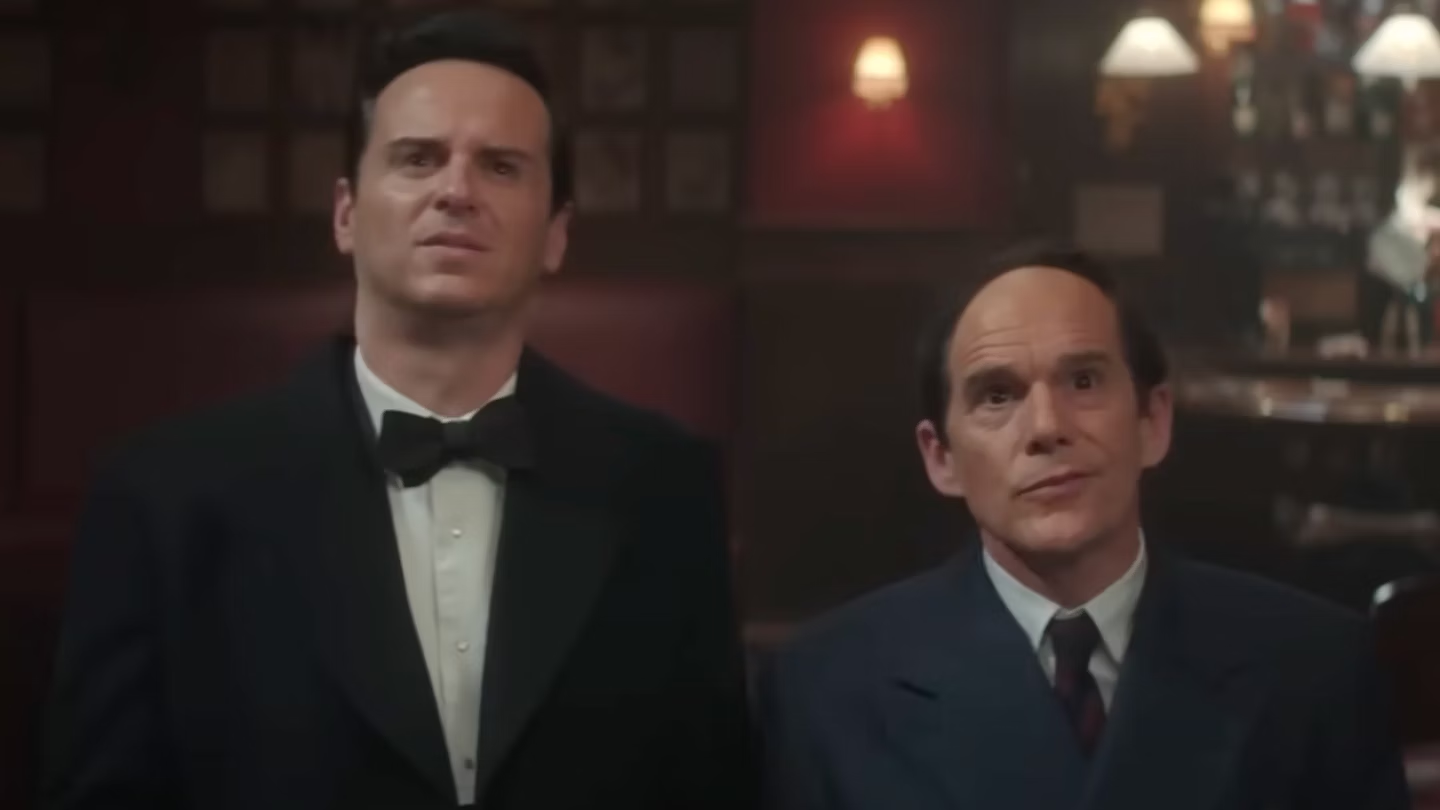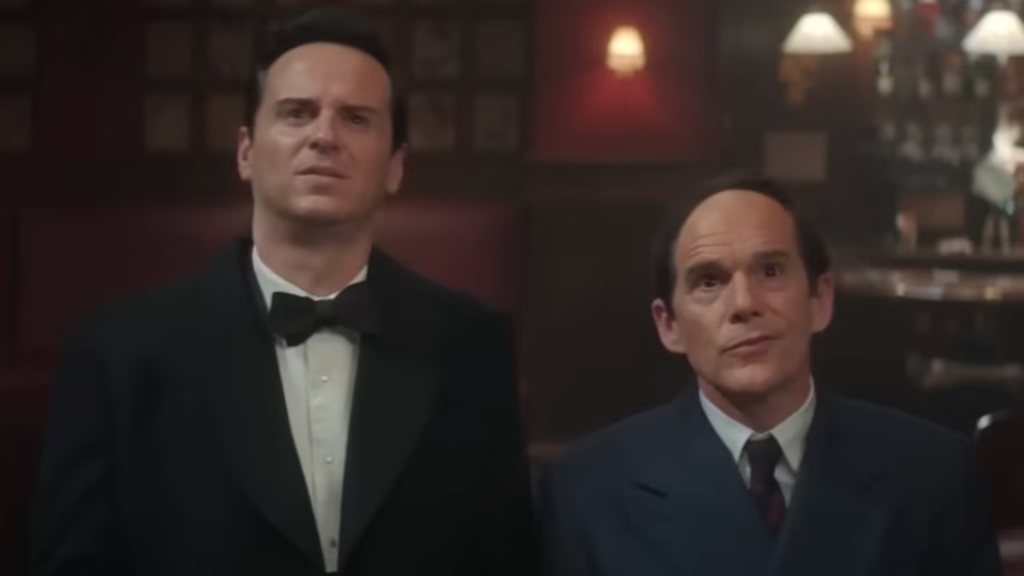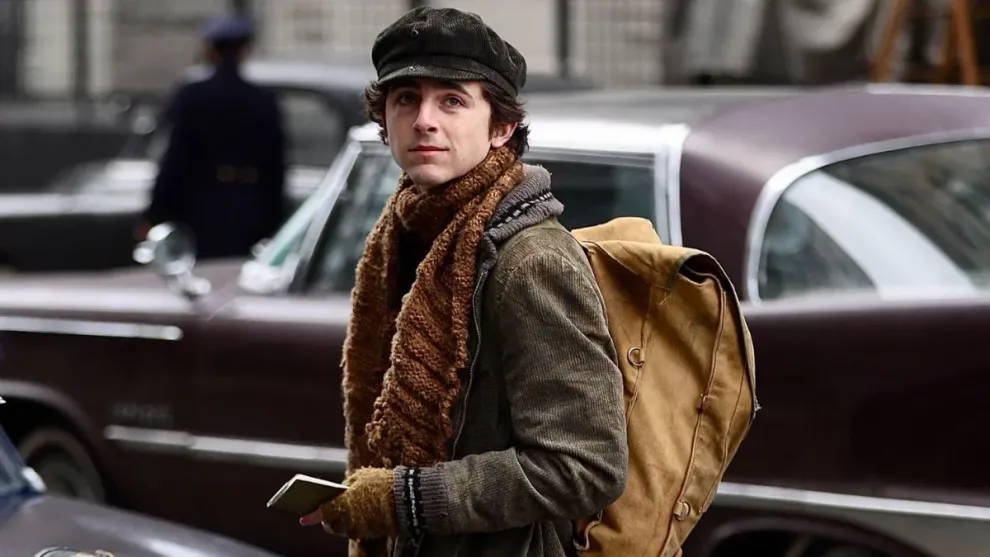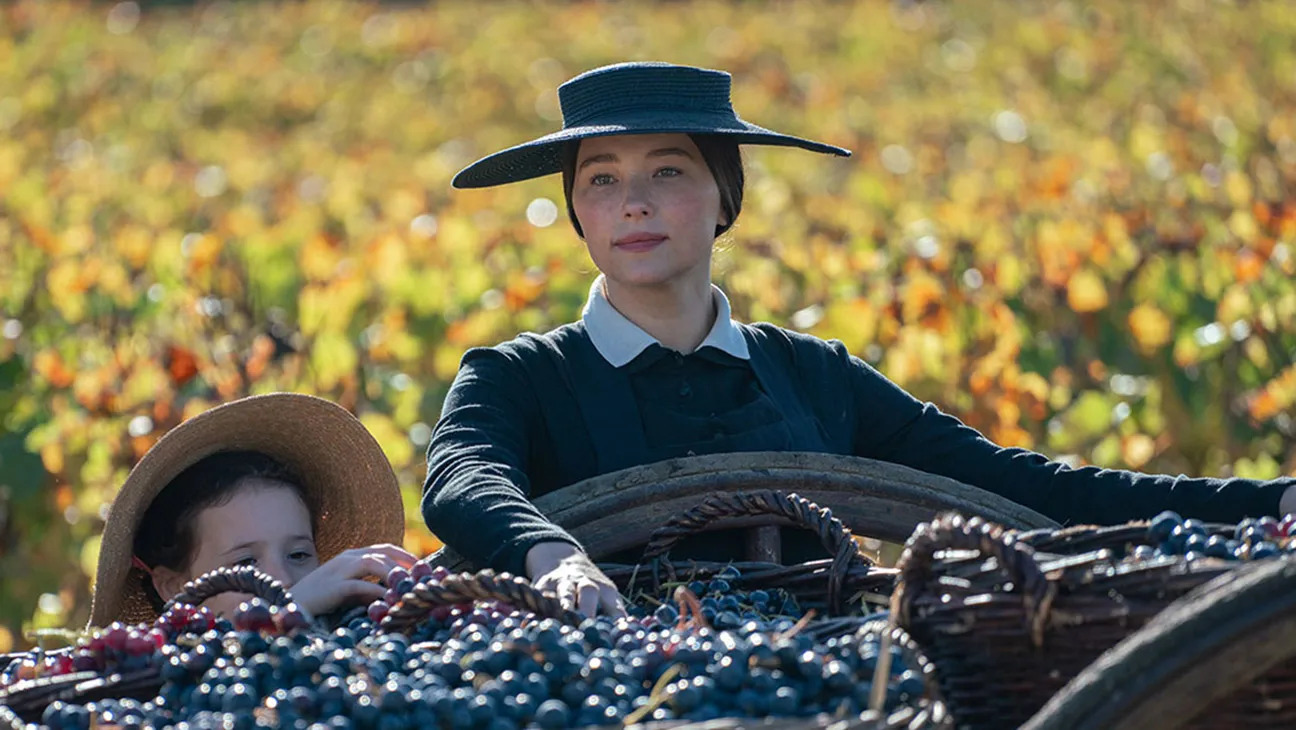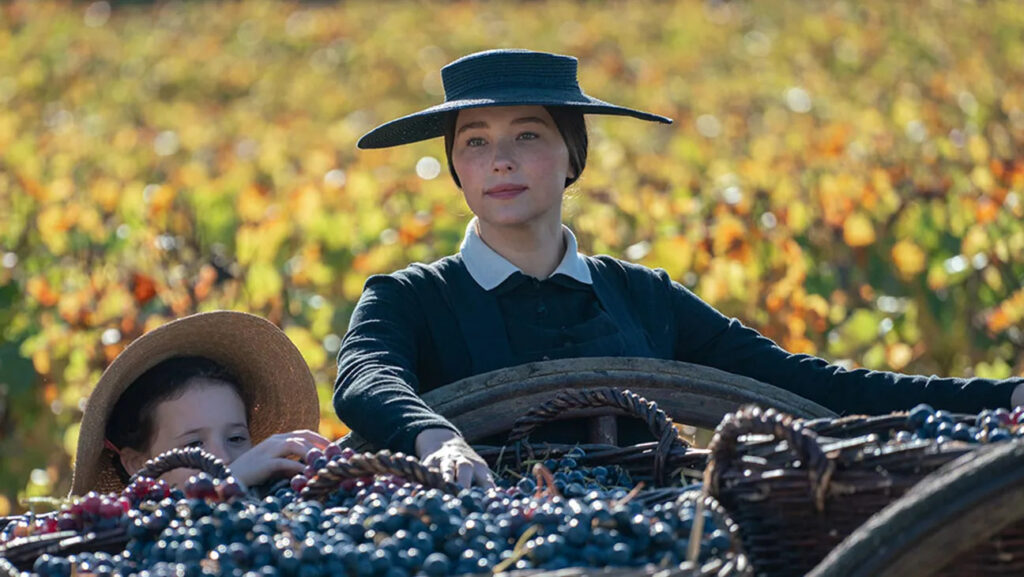Song Sung Blue
Posted on December 24, 2025 at 9:27 am
A-| Lowest Recommended Age: | Middle School |
| MPAA Rating: | Rated PG-13 for Rated PG-13 for thematic material, some strong language, some sexual material and brief drug use |
| Profanity: | Strong language |
| Alcohol/ Drugs: | Pharmaseutical abuse, character is a recovering alcoholic |
| Violence/ Scariness: | Offscreen serious injury and recovery |
| Diversity Issues: | None |
| Date Released to Theaters: | December 24, 2025 |

First there was Neil Diamond, one of the foremost singer-songwriters of the 1970s-90s. And then there was a Milwaukee couple billed as Lightning and Thunder who described their act not as a Neil Diamond tribute act, but a Neil Diamond experience. (“Experience” in this case meaning a fog machine and a leaf blower to blow back their hair.) Then there was a documentary named “Song Sung Blue” about Lightning and Thunder (real names, Mike and Claire Sardina, about the success of their act but also about their setbacks and challenges, about the music and about their love story. And now, like the infinite regression of the girl on the ketchup bottle we have two huge Hollywood stars, very slightly dimming their imperishable glamour to star in a feature film of the same name, and it is one of the most purely enjoyable films of the year, with heartfelt performances and joyous music.
Jackman plays Mike, a divorced Vietnam veteran in recovery from alcoholism who has a teenage daughter. He is passionate about performing (a character astutely observes that a recovering alcoholic will find something else to be addicted to and his is music), and he is very specific about what he wants to do. His stage name is Lightning.
He first sees Claire (Hudson), a divorced mother of a teenage daughter and a younger son, when she is performing in a curly black wig as Patsy Cline. Back at her house, they start singing together and it is instant magic. Their chemistry as performers and as a romantic couple shines from the screen. Soon they get married (at the Wisconsin State Fair) and blend their families. One particularly nice scene is when the two teenage girls get together and form their own instant connection over their family upheavals and some weed.
There are some setbacks along the way, including a mistake in booking that has them performing their first gig not, as they thought, for a motor home convention but for a motorcycle club gathering. But soon, with the help of friends, their crowd-pleasing appearances lead to an enthusiastic local following. Those friends include characters played by Jim Belushi, as the gentle, very sincere tour bus driver who signs on to book their gigs, Michael Imperioli as a devoted friend and Buddy Holly impersonator who is thirty years older than Holly ever got to be, and Fisher Stevens as a dentist so on board he gets Lightning a replacement tooth with a bolt of lightning on it. All three give endearingly open-hearted performances. Lightning and Thunder sing the Neil Diamond songs like they are brand new, with superb musicality. We can see that they are most alive when they are on stage.
“I just want to sing and be happy and feel loved!” Claire tells her daughter. “I will be Neil Diamond, but I’ll also be me,” Mike promises. “He’s…artistic,” says Mike’s daughter to Claire’s daughter, meaningfully. “Most alcoholics trade one addiction for another. Music is that for Dad.” Those comments, along with impeccable work by production designer Clay A. Griffith and costume designer Ernesto Martinez tell us what we need to know about Mike and Claire. But writer/director Craig Brewer is also telling us a deeper story about the healing power of performing music to lift the spirits, bring people together, create a sense of meaning and purpose, and just make us feel good.
Claire is badly injured in a freak accident. Mike has heart problems. But they love each other and the audiences love them. And then they get a call from Eddie Vedder, who wants them to open for Pearl Jam when they play at a huge music festival in Wisconsin. (A terrific performance by John Beckwith as a slightly laconic but enormously decent Vedder and be sure to check out the footage of that real-life performance.)
Thanks to Brewer, the movie never condescends to Mike, Claire, or their friends. It takes the same joy in their performances that their fans do. Jackson is excellent as Mike and Hudson is a revelation here, never better, with a perfect Wisconsin broad A, exquisite harmonies, and so much joy on stage we cannot help but bask in it. As Claire recovering from her injury, depressed and knocked out on painkillers, she is raw and heartbreakingly vulnerable. We know she cannot give up the music, and seeing her back on stage, reconnecting with the pure joy of the music and the audience, connects us with all of that and with the love story, too.
Parents should know that this film has strong language, a recovering alcoholic, a serious injury and painkillers, and a teen pregnancy.
Family discussion: What’s the best Neil Diamond song? Were you surprised that Eddie Vedder invited Mike and Claire to open for Pearl Jam? If you were in the audience, how would you have responded?
If you like this, try: The documentary of the same name and of course the music of Neil Diamond


